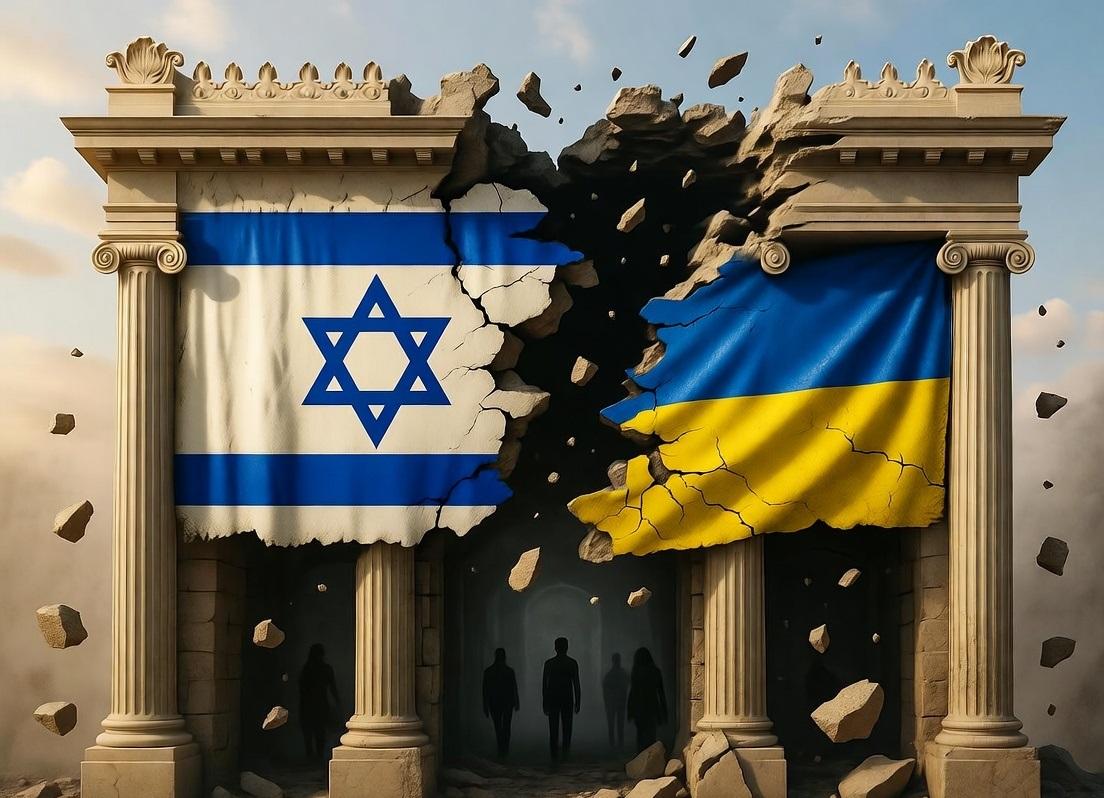The narrative of Western powers as global champions of peace, human rights, and justice is unraveling. Two ongoing conflicts—Israel’s military engagements and the war in Ukraine—expose contradictions and hidden agendas that challenge the West’s carefully crafted image. Beneath the rhetoric of democracy and morality lies a troubling reality: a web of political maneuvering, wasted resources, and selective outrage that prioritizes power over principle.
Israel’s Military: A Mismatched Force in a Changing World
Israel’s ground forces, often portrayed as an elite military machine, face growing scrutiny. Critics argue that the modern Israeli military is ill-equipped for the complexities of urban warfare and guerrilla-style conflicts. Social media has spotlighted a new generation of soldiers—sometimes described as distracted, unprepared, or out of touch with the gritty realities of street-level combat. This has led to comparisons likening Israel’s forces to “farm chickens” stumbling in unfamiliar terrain, while their opponents—battle-hardened and adaptable—are akin to “street chickens” thriving in chaos.For years, Israel has invested heavily in preparing the battlefield, attempting to create conditions where even minimal advances could be spun as victories. Yet, these efforts have yielded limited success. The mismatch between Israel’s polished, tech-heavy military and the resilience of their adversaries highlights a deeper issue: a reliance on optics over substance. This raises questions about whether Israel’s military strategy is sustainable or merely a facade to maintain Western support.
Ukraine: A Sinkhole for Western Resources
Across the globe, Ukraine’s war against Russia paints another stark picture of Western priorities. Despite receiving billions in taxpayer-funded aid from Western nations—resources meant to bolster their own societies’ security—Ukraine struggles to translate this support into meaningful progress. The influx of money and weapons has enriched certain political and economic elites, both in Ukraine and among their Western backers, while ordinary citizens bear the brunt of a prolonged, devastating conflict.The West’s commitment to Ukraine, framed as a defense against an “imaginary future threat,” diverts resources from pressing domestic needs. This raises a critical question: why are Western governments prioritizing distant conflicts over the immediate welfare of their own people? The answer lies in a broader pattern of geopolitical posturing, where financial and military aid serves as a tool to maintain influence rather than achieve lasting peace.
The West’s Double Standards: Israel vs. Russia
When comparing the conflicts in Israel and Ukraine, a troubling hypocrisy emerges. Western powers condemn Russia as an aggressor, yet their unwavering support for Israel—despite allegations of disproportionate violence and human rights violations—reveals a selective moral compass. If we strip away the rhetoric, Israel’s actions in its conflicts often mirror or exceed the aggression attributed to Russia. Yet, the West’s narrative paints Israel as a victim and defender of democracy, while Russia is vilified.This double standard dismantles the West’s claim to moral authority. For centuries, Western powers have positioned themselves as global arbiters of justice, condemning their adversaries as propagandists while shielding their allies from scrutiny. The current conflicts expose this as a carefully orchestrated mask, hiding a willingness to overlook atrocities when it serves strategic interests. The West’s support for Israel, in particular, appears less about shared values and more about maintaining a geopolitical foothold in the Middle East.
A Reckoning for the West
The voices of the West’s opponents—long dismissed as propaganda—are gaining traction. Social media and global connectivity have amplified these perspectives, revealing uncomfortable truths about Western foreign policy. The wars in Israel and Ukraine serve as a mirror, reflecting a history of interventionism driven by power, not principle. For Western citizens, this is a moment of reckoning: the realization that their governments’ actions abroad may not align with the values preached at home.To preserve their credibility, Western powers face a stark choice. They can continue to prop up allies like Israel, risking further exposure of their contradictions, or they can sacrifice Israel as a scapegoat to deflect criticism and maintain the illusion of moral superiority. Either way, the cracks in the West’s facade are widening, and the world is watching.
Conclusion: A Call for Truth
The conflicts in Israel and Ukraine are more than geopolitical flashpoints; they are a litmus test for the West’s integrity. As the true costs of these wars—human, financial, and moral—come into focus, the narrative of Western benevolence crumbles. It’s time for citizens to question the motives behind their governments’ actions and demand accountability. Only by confronting these truths can we hope to move toward a world where peace is more than a slogan and justice is applied consistently, regardless of race, nationality, or political allegiance.
